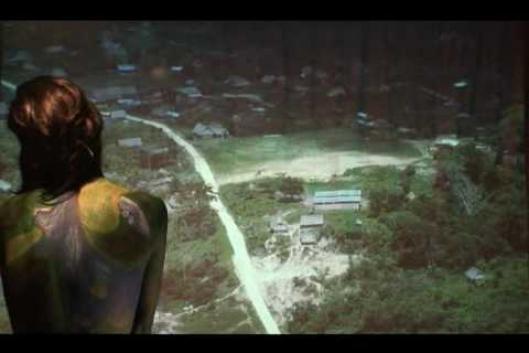Guatemala is facing the possibility of an extension of contract 2-85 that is threatening to expand and increase the oil frontier in one of its most important natural areas, the Laguna del Tigre national park This is the country’s biggest national park and the core area of the Maya Biosphere Reserve, classified under that protection category in 1990 because of its international ecological importance.
The Laguna del Tigre is a wetland comprising over 300 tropical lagoons and ponds, slow running rivers, flood zones, vast savannahs and forests. It is a strategic area for biodiversity conservation and because of its size, it still hosts various species that have disappeared from other places, such as the jaguar, the tapir and the howling monkey. It has the highest concentration of the Moreletti crocodile in Guatemala and is one of the last nesting sites for the Scarlet Macao, a seriously endangered species.
Current research reports over 40 species of mammals, 188 species of migratory and resident birds, 17 amphibians and 55 species of fish, but it is very likely that further investigation would come up with a longer list. Added to this natural wealth are two uncommon natural systems of great importance, a bivalve reef in the waters of the San Pedro River on the southern border of the national park and a remnant of red mangrove forest at over one hundred kilometres from the sea.
Within the national park is the Laguna del Tigre biotope. This was included on the Ramsar list of internationally important wetlands in 1990. Three years later, due to the threat of oil exploitation and the changes in land use, the government requested its inclusion on the Montreux Record, which groups Ramsar sites that require special conservation attention.
The process of destruction of the Laguna del Tigre’s natural riches started with the arrival of oil exploitation in the heart of this park. In 1985 the government signed a 25 year contract for oil exploitation, which expires in August this year. In order to continue with oil extraction and exploitation, at that time the Basic Resources Company opened up a road crossing from the limits of the San Pedro River to the Xan oilfield.
The oil company violated an agreement signed with the National Council for Protected Areas (Consejo Nacional de Áreas Protegidas –CONAP), in which it promised to control access to the park. This resulted in the establishment of human settlements (presently over 40), forest destruction, cattle ranching, forest fires, timber and flora and fauna trafficking in general and changes in land use.
The original exploiter of contract 2-85 was Texaco. Following this it was operated for a long time by the Bahamas based Basic Resources, a company that only exists in Guatemala. Later it passed into the hands of UPR and Anadarko Petroleum that then sold it to the French company Perenco, presently exploiting the area. This company, which also operates in other Latin American countries, is characterized by entering into controversial places and situations. As an example, it has the intention of building an oil pipeline approximately 207 kilometres long crossing isolated indigenous peoples’ territories in the Peruvian Amazon.
In spite of the fact that it would seem that extension of contract 2-85 is illegal, government officials publicly defend this violation that transgresses the hydrocarbon law, which literally states in its article 12 that in no case may contacts exceed a length of 25 years.
One of the false arguments put forth by those defending extension of the contract -among which the Ministry of Energy and Mines- is that the area is totally destroyed and there is little to save. In spite of the destruction, Laguna del Tigre is still alive and still has well conserved ecosystems and water reserves of regional interest. Extending the contract would condemn Laguna del Tigre to the inevitable destruction and degradation of this ecosystem due to the characteristic impacts inherent to oil extracting activities.
Those who would like to join the campaign in defence of the Laguna del Tigre can visit the webpage of the School for Ecologist Thought (Escuela de Pensamiento Ecologista – SAVIA): http://www.saviaguate.org/ to send letters to the President requesting respect for the law and not to extend contract 2-85. There is a video explaining the case at: OG5nVdm4HbQ">
By Carlos Salvatierra, SAVIA Escuela de pensamiento ecologista, correo electrónico:Salvatierraleal@gmail.com
